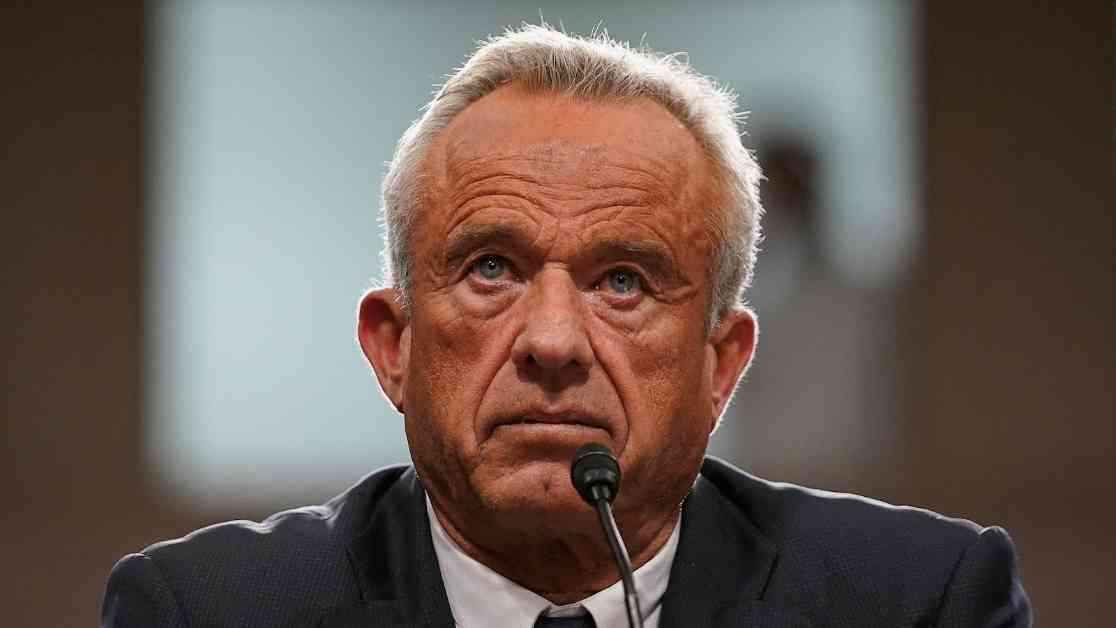Senate Confirms Robert F. Kennedy Jr. as Trump’s Health Secretary
In a historic turn of events, the Senate officially confirmed Robert F. Kennedy Jr. as the secretary of Health and Human Services on Thursday. The final vote, with a close margin of 52 to 48, marked a significant milestone in the political landscape. However, amidst the prevailing atmosphere of bipartisanship, Republican Senator Mitch McConnell, a polio survivor himself, stood as the lone dissenting voice against Kennedy, casting his vote in opposition. On the other hand, Democrats presented a united front in their resistance to Kennedy’s appointment.
The confirmation of Robert F. Kennedy Jr. follows a tumultuous journey filled with controversy and debate, largely centered around his previous statements questioning the safety and efficacy of vaccines. As an environmental lawyer with no prior experience in health administration or medicine, Kennedy now steps into a role that encompasses the oversight of a vast network of agencies responsible for providing healthcare coverage to millions of Americans, regulating the food industry, and addressing global health crises.
### The Polarizing Figure: Robert F. Kennedy Jr.
Robert F. Kennedy Jr., scion of the renowned Democratic dynasty and President Trump’s nominee for the position of Health and Human Services secretary, faced intense scrutiny during his confirmation hearings. His past remarks, particularly those casting doubt on the validity of vaccinations, drew sharp criticism and raised significant concerns among lawmakers. Kennedy’s unfounded claims linking vaccines to autism stood at the forefront of the contentious discussions, prompting a deep dive into his stance on crucial public health matters.
During the hearings, Kennedy underwent rigorous questioning regarding his evolving views on immunizations, notably his newfound support for polio and measles vaccines. While he distanced himself from the “anti-vaccine” label, he emphasized a commitment to vaccine safety, stopping short of disavowing his previous assertions about vaccine-autism links. Despite the lingering skepticism surrounding his candidacy, Kennedy’s moderated stance on certain vaccine-related issues managed to sway some Republican senators in his favor.
### A Divisive Landscape: Political Maneuvering and Compromises
In a strategic move to secure additional support, President Trump and Vice President JD Vance personally engaged with senators to bolster Kennedy’s confirmation bid. Republican Senator Bill Cassidy, a seasoned physician and ardent vaccine advocate, found himself torn between his professional convictions and the political landscape. Ultimately, he chose to endorse Kennedy’s nomination, citing assurances from Kennedy regarding enhanced congressional oversight of vaccine programs.
Meanwhile, Senator Susan Collins of Maine, recognized as a pivotal swing vote, navigated a complex web of concerns around health research funding and policy directives under the Trump administration. Collins, after meticulous deliberation, announced her decision to back Kennedy, highlighting his willingness to reevaluate contentious issues and engage in constructive dialogue. The delicate balance of interests and commitments underscored the intricate interplay of politics and public health priorities in shaping Kennedy’s path to confirmation.
As Robert F. Kennedy Jr. assumes his new role as Secretary of Health and Human Services, the convergence of disparate perspectives and political forces sets the stage for a transformative chapter in the nation’s healthcare landscape. Amidst the prevailing tensions and uncertainties, the enduring legacy of this confirmation process resonates as a testament to the enduring complexities of governance and public health stewardship.


